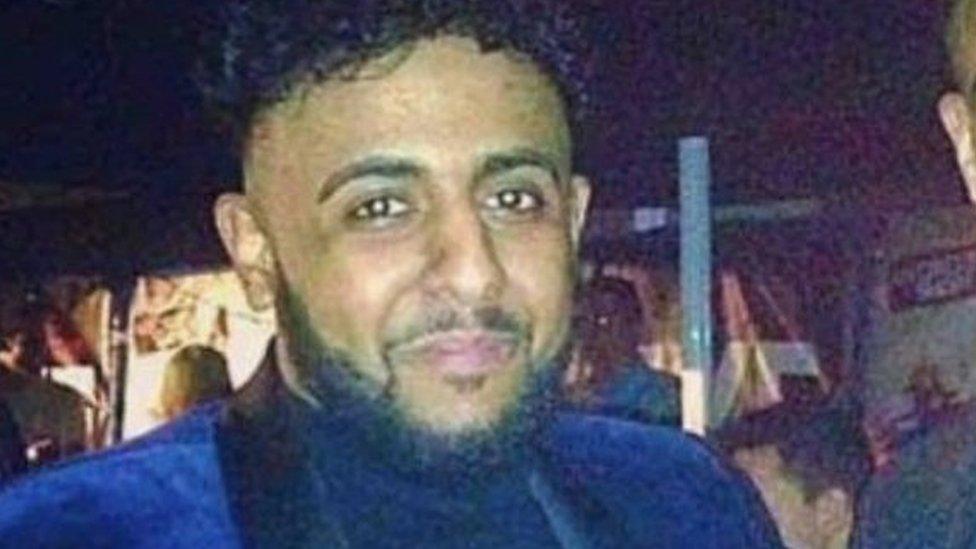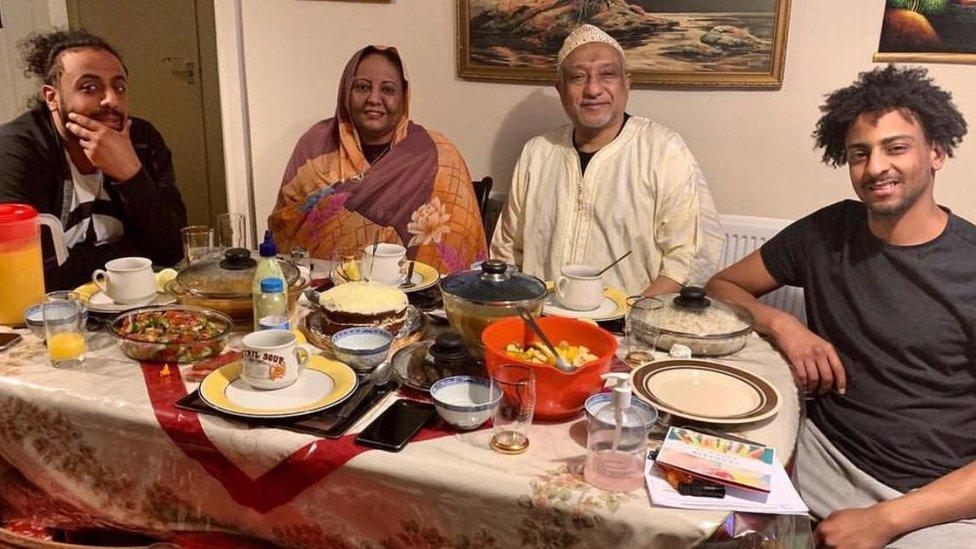Mouayed Bashir: Police feared restrained man had weapon
- Published

Mr Bashir was retrained by officers at this family's home and later died in hospital.
A man who died after being restrained by police was feared to have been armed at the time, an inquest has heard.
Mouayed Bashir, 29, was at his parents' house in Newport when they alerted emergency services to a health episode he was suffering from.
A jury heard Gwent Police were aware Mr Bashir had a history with firearms due to "warning markers" in their records.
Police officer Laura Edwards said as a result officers believed there would be a "potential risk of violence".
The officer said she was the first to arrive at Mr Bashir's family house in the city's Maesglas area, and told the inquest that the warning markers attached to Mr Bashir's name was "quite concerning".
She said the warning markers - a system used by the force to identify someone previously known to the police - related to drugs and firearms.
"I thought there was a potential of weapons [being] involved," she said, adding that the decision to restrain Mr Bashir was because he had been "very aggressive" and had kicked out at another officer.
On entering the home on the morning of 17 February 2021, PC Edwards was told by Mr Bashir's father, Mamoun, that his son had barricaded himself in his room and was hurting himself.
PC Edwards said: "We didn't know what was in the room and Mouayed was hurting himself - I didn't think it was a safe environment to contain someone."
Mr Bashir then had his arms cuffed behind his back and strapped, while his legs were taped together.

Officers were called to the Bashir family home after concerns for his safety
He was then taken to hospital but was later declared dead.
A pathologist previously told the inquest Mr Bashir had a mix of drugs in his blood, including cocaine and diazepam, and believed he was suffering from acute behavioural disorder (ABD) as a result of cocaine use.
PC Edwards was asked by the coroner whether she associated this incident with ABD - she answered: "No."
Then asked if she had done ABD training, she replied: "I believe I had."
She said she knew and had taken into consideration the fact that restraining Mr Bashir could have made the situation worse.
The inquest continues.
Related topics
- Published15 January 2024

- Published19 January 2024
